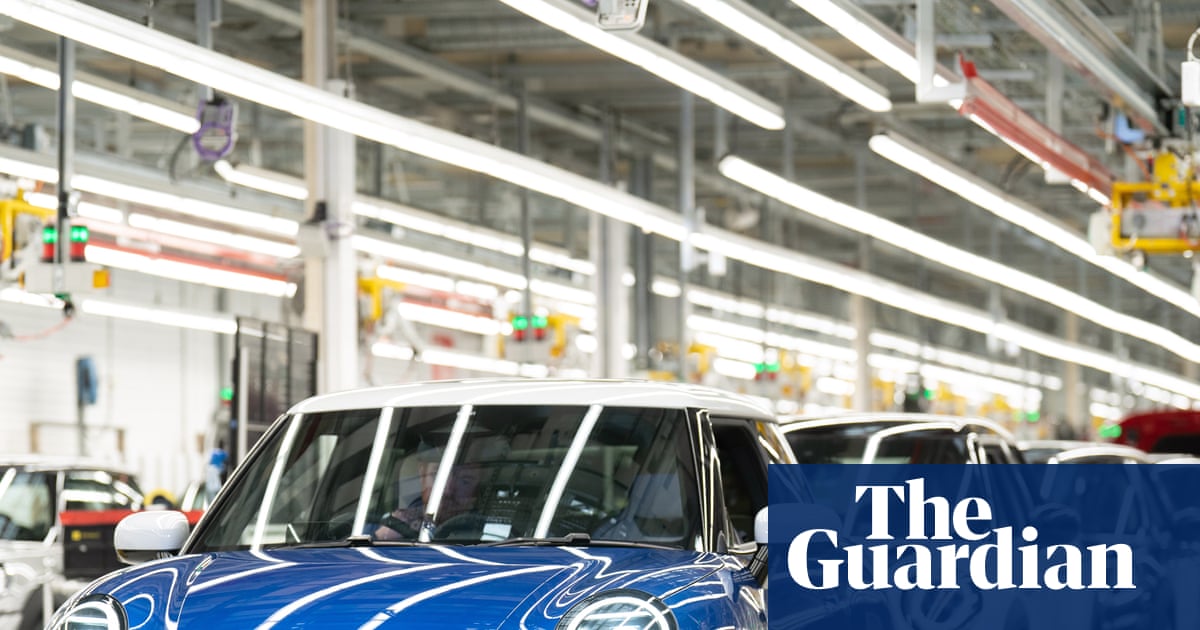British car and van manufacturing slumped in the first half of the year to its lowest since 1953 outside the Covid pandemic, as Donald Trump’s US tariffs caused global industry chaos.
UK vehicle manufacturing declined by 12% to 417,200 units in the first six months of the year, figures from the Society of Motor Manufacturers and Traders (SMMT), a lobby group, show.
Only 2020 was worse in the past 72 years, when factories were shut during pandemic lockdowns.
“It has been one of the toughest periods for UK automotive,” said Mike Hawes, the SMMT’s chief executive. He said he hoped the industry was “at the nadir” before a recovery. “The general view is that this is the bottom,” he added.
Carmakers have struggled with slower than expected sales while trying to switch manufacturing from petrol and diesel to cleaner electric models, while Stellantis decided to close its Vauxhall van factory in Luton.
Trump’s tariffs of 25% on all car imports threatened to close off an important export market, particularly for Britain’s luxury carmakers such as Bentley, Rolls-Royce and Jaguar Land Rover, the Range Rover maker.
Those carmakers paused shipments from April, hoping for lower tariffs. The second half of 2025 is expected to be better for British manufacturers, thanks to the UK’s deal with the Trump administration to allow 100,000 exports a year at the lower tariff of 10% from the end of June. Car and van production rose by 7% in June compared with the same month last year.
Hawes said the 100,000 quota would allow the industry to “keep the wolf from the door” by continuing sales at about the same level as 2024, although it would not allow for growth beyond that level without another negotiation with the US’s busy trade officials.
Some carmakers in Britain – including Japan’s Nissan, which is due to start producing its new Leaf electric car in Sunderland, northern England – are also expected to be among the main beneficiaries of the Labour government’s decision to subsidise the sale of electric cars by up to £3,750.
Those subsidies, worth £650m, will be limited to cars priced at less than £37,000; rules on the carbon dioxide emissions associated with production will mean that imports from outside Europe, including from China and South Korea, will be unlikely to qualify.
While Hawes welcomed the decision to support electric car sales, after a three-year gap, he said the subsidies were “devised, developed by government without consultation with industry”.
after newsletter promotion
Some details of the scheme will not be announced for weeks, leaving carmakers unclear about whether their vehicles will qualify. That confusion has thrown sales plans into disarray, as several companies are unable to say what their products will cost – and sales are expected to drop in the short term as buyers await clarity.
The subsidies could also make it harder for excluded carmakers to meet targets on electric car sales, known as the zero-emission vehicle (ZEV) mandate, Hawes said.
The difficult conditions for the UK industry have meant that ambitions have had to be scaled back. As recently as 2017 the SMMT had hoped for production levels of 2m UK-made cars a year. The latest forecasts prepared for the lobby group suggest there will be only 755,000 cars made in 2025, down from an expectation of 815,000 in April, before the tariff chaos.
